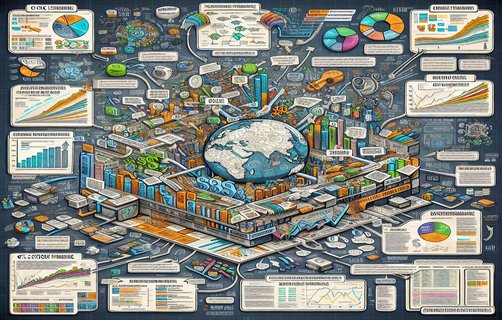
Into the labyrinth of modern probability and digital ingenuity, where each spin and click resonates with futuristic precision, emerges a realm of possibilities that challenge the very foundations of traditional betting. In this avant-garde exploration, we dissect the intricate dance of AI, big data, and state-of-the-art techniques that propel strategies such as maxbet, randomdraw, planbetting, and conservative strategy into a new era.
At the heart of our analysis lies the premise that contemporary betting is no longer a game of pure chance. Instead, it is a finely calibrated operation powered by advanced algorithms and vast datasets. Bingo slots, once considered mere luck-based games, now leverage machine learning models that analyze countless historical records. Through comprehensive insight sharing and rigorous statistical scrutiny, these models continuously refine outcomes, giving rise to approaches that enable players to make informed decisions.


The maxbet and randomdraw features are prime examples of this paradigm shift. Maxbet, by facilitating higher stakes under controlled risk parameters, allows enthusiasts to tap into high-reward scenarios when the data indicates favorable conditions. Meanwhile, the randomdraw mechanism, far from being a haphazard selection process, relies on complex probability algorithms that combine randomness with predictive analytics. This fusion of chance and precision underscores the evolving strategy behind planbetting—a method where calculated wagers are executed in sequences that align with data-driven foresight.
In recent years, the marriage of AI with betting has produced systems capable of detecting subtle patterns that humans might easily overlook. Predictablewins and winningbonus schemes, orchestrated through intelligent behavior scoring and historical trend analysis, have transformed the conservative betting strategy into an art form. Rather than avoiding risk, modern technology encourages a nuanced evaluation of risk-reward scenarios, enabling players to capitalize on even small statistical edges. Such systems are not merely reactive; they are proactive in identifying the optimal moments to unlock bonuses and maximize winnings.
Big data significantly amplifies the reliability of these strategies. By processing enormous volumes of information—from transaction histories to real-time user behavior—algorithms can identify anomalies, forecast trends, and simulate outcomes. This technological empowerment not only refines predictive models but also informs the design of new features, such as dynamic risk adjustment and personalized betting limits. The interplay between data and decision-making has allowed conservative strategies to evolve into sophisticated models that thrive in volatile technological landscapes.
Modern technology is also reshaping the regulatory and operational framework of digital betting. Enhanced security measures, such as blockchain for transaction verification, provide an extra layer of transparency and integrity. Additionally, cloud computing ensures that betting platforms can handle massive peaks in data traffic while maintaining uninterrupted performance. As AI continues to evolve, its integration with other emergent technologies may further refine the balance between risk and reward, ensuring that the digital betting ecosystem remains both competitive and fair.
The discussion extends beyond pure technological advancements; it delves into the implications for user engagement and ethical responsibility. With AI and big data at the helm, the dialogue around user privacy, responsible betting practices, and the digital divide has entered new territory. For stakeholders, it becomes imperative to balance technological optimism with regulatory prudence, ensuring that advancements benefit the community at large.
Interactive Questions:
1. How do you see AI transforming traditional betting strategies in the next decade?
2. Which feature – maxbet, randomdraw, or planbetting – do you think offers the most potential for innovation?
3. What role should ethical considerations play in further advancing digital betting platforms?
4. Could the integration of blockchain technologies address concerns around transparency and fairness?
FAQs:
Q1: How does AI improve the predictability of wins in betting?
A1: AI enhances predictability by analyzing historical data, identifying patterns, and applying statistical models that forecast outcomes with greater precision, thus transforming strategies like predictablewins and winningbonus.
Q2: What is the role of big data in planbetting?
A2: Big data processes massive volumes of information to provide real-time insights and trend analysis, which in turn informs strategic decisions and optimizes betting sequences.
Q3: Are conservative strategies compatible with high-tech betting systems?
A3: Yes, conservative strategies have evolved to incorporate cutting-edge technology, blending risk management with data-driven insights to create a balanced and sustainable approach to betting.


Comments
Alice
The integration of AI into betting strategies is genius! The article makes complex concepts so accessible.
小明
这篇文章深度剖析了大数据和AI如何改变传统博彩,真是太有启发性了!
TechGuru
A compelling mix of technology and gambling theory. I’m curious to see how blockchain might further revolutionize these strategies.